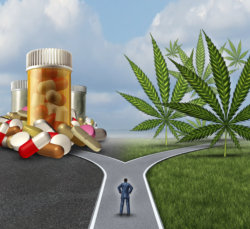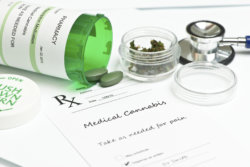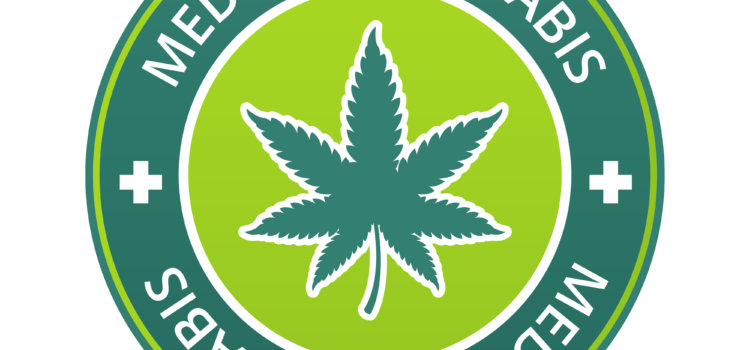 The conversation and debate regarding the war on drugs, decriminalization of drugs use and legalizing marijuana has been ongoing. Some developments have been made towards an alternative approach to drugs and we currently have 25 states in which the use of marijuana for medical purposes is legal. More and more public figures, agencies and political institutions are endorsing a move away from criminalization and promoting the potential for marijuana as a medical alternative to the potent and highly addictive medicines being prescribed for illnesses, such as cancer and several forms of chronic pain. There are definitely financial positives and it is glaringly obvious that the war on drugs has failed miserably, despite an annual investment of $51 billion. Police time is wasted on a daily basis in order to deal with policing of possession and selling, with a staggering 660,000 arrests made in 2012, in addition to a price tag of $3.6 billion. Criminalization has also proven to be ineffective in light of the fact that over 30 million Americans use marijuana every day. In a national context the solution of legalization seems a progressive and rational one but what does legally using marijuana for medical purposes mean for the individual. We have gathered the information in order to examine the pros and cons of using medical marijuana, assisting those considering it as a viable option for illness in making their decision.
The conversation and debate regarding the war on drugs, decriminalization of drugs use and legalizing marijuana has been ongoing. Some developments have been made towards an alternative approach to drugs and we currently have 25 states in which the use of marijuana for medical purposes is legal. More and more public figures, agencies and political institutions are endorsing a move away from criminalization and promoting the potential for marijuana as a medical alternative to the potent and highly addictive medicines being prescribed for illnesses, such as cancer and several forms of chronic pain. There are definitely financial positives and it is glaringly obvious that the war on drugs has failed miserably, despite an annual investment of $51 billion. Police time is wasted on a daily basis in order to deal with policing of possession and selling, with a staggering 660,000 arrests made in 2012, in addition to a price tag of $3.6 billion. Criminalization has also proven to be ineffective in light of the fact that over 30 million Americans use marijuana every day. In a national context the solution of legalization seems a progressive and rational one but what does legally using marijuana for medical purposes mean for the individual. We have gathered the information in order to examine the pros and cons of using medical marijuana, assisting those considering it as a viable option for illness in making their decision.
Medically there are conflicting opinions on marijuana use. The United States Drug Enforcement Agency classifies marijuana as a schedule 1 drug. The federal agency believes the drug to have no currently accepted medical use, with a high potential for abuse. As a schedule 1 drug it is considered one of the most dangerous drugs, being highly addictive and having the potential to cause severe psychological or physical dependence. The opposing argument to this, from both users and many experts, is that marijuana can and should be used medicinally as an alternative to FDA approved medication. Such believers think the drug is over stigmatized and because of this it’s value and potential is being ignored. Many also argue the case that alcohol, as a legal drug is far more dangerous, addictive and harmful to individuals and society as a whole. There is a strong argument here with 80,000 alcoholic related deaths per year and zero Marijuana related deaths.
In considering marijuana use for medical purposes it important to understand there is a difference in medical marijuana and regular street marijuana. The main one being that medical marijuana is pure and not laced with the type of chemicals you get in street drugs. There can be two reasons to use marijuana, either medically to relieve symptoms of medical conditions or recreationally in order to get high. The type you purchase and use is usually determined by your reason for using. Those who chose to use marijuana for medical reasons may also wish to get high. The “getting high” aspect of the drug, for some, adds to its positive effects. Many also believe the euphoric feeling from getting high is helpful to individuals who are ill in assisting with things like chronic pain. The single chemical in marijuana that causes a high is tetrahydrocannabinol (THC). The alternative to marijuana containing THC is non psychoactive marijuana which contains a different chemical- cannabidiol (CBD). The type, potency and amount that any one person can have in their possession is dependent on the state, with each state having their own legislation in approving legalization and laws with respect to the drug’s use.
As with any drug, legal or illegal you need to be responsible, sensible and find what works for you and above all ensure that your physical and mental health is not compromised as a result of use. Obviously many drugs have side effects but it’s a case of weighing up whether or not the benefits you receive outweigh any negatives to your health or well-being.
In deciding to use marijuana for medical purposes, the method which you chose to consume it, is significant in determining the possible negatives or risks to your health. Those who smoke or vape do have risks to consider as with standard tobacco/ nicotine smoking. Alternatively ingesting marijuana, as an edible for example results in a lesser risk of lung cancer, lung disease and other pulmonary and respiratory issues associated with smoking.
Considering the type of marijuana you plan to use and understanding the various types available is an important first step. From there you need to weigh up the possible positives and negatives of consuming the drug. We’ve reviewed the information and below are some of the main pros and cons of using medical marijuana.

Pros of using medical marijuana
- Marijuana has been purported to alleviate symptoms of various diseases and illnesses. The most commonly researched and publicized are epilepsy, AIDS, Arthritis, glaucoma, and crohn’s disease. It also helps with symptoms such as nausea from chemotherapy and decreases muscles spasms related to multiple sclerosis.
- While there are various ways in which you can consume marijuana, smoking is assumed to be the most potentially dangerous; however studies suggest that the drug does not have the same negative effects as tobacco and it also does not have association with any major illnesses, as tobacco or indeed alcohol does. In addition to this it has not been directly related to any life threatening illness or documented as a direct cause of death.
- Used for specifically medical purposes and under prescription, marijuana does not have the same level of potency and many in the science and medicine field believe it to be a safe source of medication with far less toxic chemicals than “traditional” prescription medication.
- Even used as a recreational drug, evidence suggests that marijuana has preventative benefits with respect to illness. It can lower the risk of diabetes and obesity through improving the metabolism; as well as reducing the risk of various forms of cancer, including throat, lung and bladder cancers. It has also been associated with slowing the progression of Alzheimer’s disease.
- Irrespective of how marijuana is ingested it results in THC or other cannabinoids to interact with two sets of brain receptors. Receptor CB1 is specific to body movements, memory and balance and receptor CB2 is specific to your immune system. Marijuana is often used to suppress these various parts of the body, diseased or not. Depending on the individual, their health or indeed mental state this can prove beneficial. For example increasing an individual’s immune function or assisting an ill person to overcome their sickness more easily.
- Psychologically there are arguments and studies to suggest that marijuana can alleviate symptoms of disorders such as ADHD, ADD, social anxiety, and it has also been documented to have successes in the treatment of PTSD. These results relate to the impact cannabinoids have on an individual’s brain receptors. Positive psychological attributes may be surprising to some as the drug is also sometimes associated with mental instability. And while it is not physically addictive like drugs such as alcohol or heroin, individuals have been known to become psychologically dependent. This dependence does not present the same hallmark withdrawal symptoms associated with addiction to other substances, such as tremors, sweating and nausea; with many believing marijuana addiction is a myth.

Cons of using medical marijuana
- Marijuana is classed as a schedule 1 drug. Whether you agree with this or not, in many states it is not legal to posses or use the drug either medicinally or recreationally. Possession and use of the drug in some states may lead to a criminal record, a fine or a prison sentence.
- You may feel you have a medical reason to use marijuana but unless you adhere to the procedure set out in your state, which is generally receiving a diagnosis and being prescribed the drug, then you are in breach of the law. Once “approved” by a medical professional you will receive a medical marijuana card. Buying marijuana falsely with a fraudulent card is an offence. This can be a challenge and frustrating for genuine patients, as not all practitioners are as open to this new method of treatment as others; therefore a prescription may be difficult to obtain.
- Smoking is a dangerous habit and linked to a broad range of illnesses and life threatening diseases. Aside from being associated with several forms of cancer, it also causes serious respiratory and pulmonary problems. Marijuana smoke contains 50 to 70 percent more carcinogenic hydrocarbons than tobacco smoke, which makes it more likely to cause serious illnesses related to smoking. Studies show that one cannabis cigarette a day can result in the same degree of bronchial damage as smoking 20 or more tobacco cigarettes per day.
- Marijuana’s ability to suppress brain receptors can result in impaired normal thinking, diminished problem solving skills and a deterioration in short term memory. It can also decrease an individual’s reaction time and alter perceptions; as well as reducing balance and coordination due to its impact on receptor CB2. It is for these reasons that a significantly high percentage of car crashes are linked to marijuana use.
- Arguments that marijuana is less potent and contains less harmful chemicals than legalized drugs are not always true. If purchasing from a licensed seller you have the security of knowing what your marijuana contains, however if you do not chose the legal and legitimate route and purchase street marijuana, you may be consuming chemicals far more harmful than any you will find in notoriously potent prescription medication. Also marijuana is made up of an unstable mixture of over 400 chemicals, many of which are psychoactive chemicals and largely unstudied.
- The psychoactive chemicals in marijuana mean that it has a significant influence on the user’s mind. It is related to many mood disorders and has been known to increase the probability of developing depression. Despite claims that marijuana helps anxiety, many report to suffer intense anxiety and panic attacks as a result of use. The drugs suppressive traits can also dull mood, cause drowsiness and alter personality.
- There is a lengthy list of possible side effects related to marijuana use including; increased heart rate and a decrease in blood pressure which may cause heart complications with prolonged use. A study by Boston’s Beth Israel Deaconess Medical Center and Harvard Medical School stated that marijuana increases the risk of having a heart attack within the first hour of smoking to five times that of non-smokers.
- Some claim that marijuana does not have addictive properties, however there are many documented withdrawal symptoms which is an indicator of addiction. These include cravings, decreased appetite, sleep problems, weight loss, aggression, irritability, restlessness, strange dreams, and hallucinations.
Final thoughts
In any discussion there are always two sides; in the argument for and against marijuana there are credible cases to be put forward for both. The evidence gathered demonstrates somewhat of a balance in this instance, with equally positives and negatives attributed to medical marijuana use. In reality this is the case for all medications, as they all come with a lengthy list of side effects and with all drugs it depends on the individual consuming them. We all react and respond to medications very differently, interacting in varying ways with our chemical makeup. No drug is universally positive and something that may work exemplary well for one, could be ineffective or negative for another. It is a case of personal choice, based on research, and understanding, while ensuring one’s overall health and well-being is never compromised.
You may also want to read this testimonial from a medical marijuana user https://drugrehabcomparison.com/2016/07/29/medical-marijuana-alcoholism-recovery-safe/
